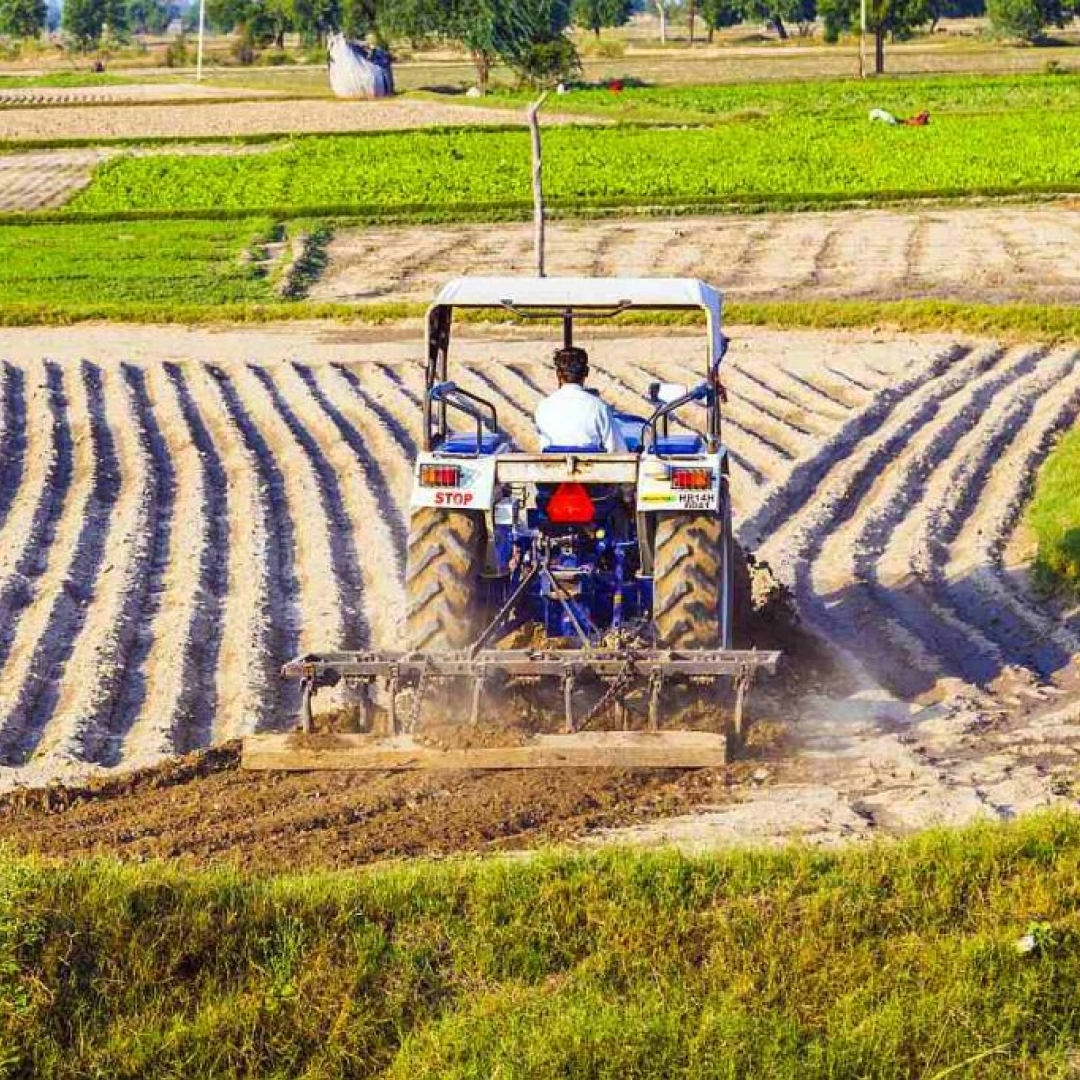
Cooperatives remain an indispensable pillar of India’s agricultural and rural development. They function on the principles of mutual benefit and shared prosperity, establishing an economic safety net that promotes stability, resilience and fair distribution of wealth by uniting small-scale producers. These grass-root member-driven democratic business units have been instrumental in key agricultural revolutions, making the country self-reliant in food grain production, milk production and fisheries.
The rise of BioAg, which focuses on sustainable and eco-friendly farming practices, has created new opportunities for cooperatives to enhance their contributions to agricultural development. With a growing emphasis on biofertilizers, biopesticides and organic farming, Indian cooperatives are emerging as key players in the movement towards a more sustainable and resilient agricultural system.
Cooperatives are not just limited to national development but also play a crucial role in addressing global challenges. They contribute to food security, employment generation and poverty alleviation, ensuring a more sustainable and inclusive economy. Their contribution aligns with the United Nations Sustainable Development Goals (SDGs), such as SDG 2 (Zero Hunger), SDG 16 (Peace, Justice, and Strong Institutions), etc. Cooperatives contribute to bridging the wealth gap and promoting social stability through economic cooperation, making them an essential tool in global economic development.
STATUS OF COOPERATIVES IN INDIA
India currently boasts one of the largest cooperative networks in the world. According to the National Cooperative Database (NCD), there are over 828,000 cooperatives operating across 30 sectors. The agricultural sector dominates in terms of cooperative presence, followed by housing, dairy and fisheries. However, regional disparities exist, with some states having a much higher concentration of cooperatives than others. Keeping this in mind, the government is actively working to expand cooperative reach and spread, particularly in underserved areas.
The regulation of cooperatives in India follows a dual structure. State cooperative societies are regulated by respective State Cooperative Departments, while multi-state cooperative societies (MSCS) come under the jurisdiction of the Central Registrar of Cooperative Societies (CRCS). This structured framework ensures transparency, accountability and efficient functioning of cooperatives, making them a reliable and trusted business model.
The 97th Constitutional Amendment Act, 2011 granted constitutional status to cooperative societies and outlined various landmark provisions. While right to form cooperative societies was included as a fundamental right by inserting the words ‘cooperative societies’ in Article 19(1)(c) in Part III of the Constitution, Article 43B was inserted in Part IV of the Indian Constitution as Directive Principle of State Policy for promotion of cooperative societies.
A NEW ERA OF COOPERATIVES
Despite their significant contributions, the cooperative sector in India has faced several challenges, including regional and sectoral imbalances, regulatory complexities, governance issues, and a lack of professional management. Additionally, cooperatives have struggled with limited collaboration, underutilization of global opportunities, and inefficiencies in consolidating assets, supply chains and services.
Recognizing these challenges and the immense potential of cooperatives to drive economic and social development, the Government of India established the Ministry of Cooperation (MoC) on 6th July 2021. This dedicated Ministry aims to streamline cooperative governance, implement structural reforms, enhance inter-cooperative collaboration and integrate cooperatives into national and global markets. By addressing regulatory bottlenecks and fostering innovation, the MoC is all set to transform the cooperative movement into a more dynamic and inclusive force contributing significantly to the national Gross Domestic Product (GDP).
MoC has introduced over 55 initiatives aimed at modernizing and strengthening cooperatives across the country. These initiatives are divided into different categories– the measures to economically strengthening primary cooperative societies, creating three new national level multi-state cooperatives viz. Bharatiya Beej Sahakari Samiti Limited (BBSSL), National Cooperative Organics Limited (NCOL) and National Cooperative Export Limited (NCEL), providing tax relief for cooperatives, reviving cooperative sugar mills, enhancing the functioning of cooperative banks, expanding the National Cooperative Development Corporation (NCDC), and including cooperatives as buyers on the GeM (Government e-Market) Portal. These initiatives collectively aim at diversify the sector, overcome longstanding challenges of cooperative spread and outreach, and broaden its impact in ensuring higher participation and stronger business networks.
Initiatives like Primary Agricultural Credit Societies (PACS) and PACS Model Bye-laws serve as the backbone of India’s cooperative structure. National Cooperative Database (NCD), a data-driven initiative provides comprehensive insights into the functioning, distribution and performance of cooperatives nationwide. This initiative has already facilitated and guided preparation of a framework to create 200 thousand new multi-purpose PACS, dairy, and fisheries cooperatives, ensuring balanced growth across all regions. To further strengthen the cooperative framework, the government has linked PACS with three key institutions: BBSSL, NCOL and NCEL to provide resources for creating a supportive ecosystem for sustainable agriculture.
In addition to these initiatives, established cooperatives like IFFCO and KRIBHCO continue to play a critical role in agricultural input supply. These organizations provide high-quality fertilizers, seeds and other essential agricultural resources at affordable prices. IFFCO has pioneered the introduction of nano-urea, a revolutionary product that significantly enhances nutrient uptake efficiency while reducing environmental degradation caused by excessive fertilizer use. This innovation is a major step toward sustainable farming practices, aligning with India’s goal of promoting eco-friendly and resource-efficient agriculture.
The cooperative movement in India is undergoing a significant transformation, driven by policy reforms, institutional support and technological integration. The government is ensuring that cooperatives remain a strong and sustainable model for economic growth by expanding the scope of PACS, connecting cooperatives with key national organizations, and encouraging data-driven decision-making through the National Cooperative Database. With the MoC’s targeted initiatives, the cooperative sector is evolving into a dynamic force capable of addressing both national and global challenges. The infusion of technology, financial support and structured policies ensures that cooperatives are not just surviving but thriving, enabling small farmers and rural entrepreneurs to compete in an increasingly globalized market.
As India moves towards a future where sustainable agriculture is not just an option but also a necessity, cooperatives will play a defining role in ensuring food security, economic stability and environmental resilience. Cooperatives are at the heart of India’s vision for ‘Aatmanirbhar Bharat’ (Self-Reliant India), ensuring food security, rural prosperity and economic resilience. India is not only empowering its farmers by promoting a cooperative-led economic framework, but it is also setting an example for the rest of the world about how community collaboration can lead to country’s socio-economic success. The journey ahead is promising, and as the cooperative sector continues to expand and innovate, it will be instrumental in shaping a stronger, self-reliant and globally competitive agricultural economy.
ABOUT THE AUTHORS
Dr. S. K. Wadkar is an Advisor at the National Cooperative Union of India (NCUI), Delhi, with over 12 years of experience in agribusiness, cooperative law and social enterprise management. He holds Master’s in Agricultural Extension from G.B. Pant University, and a Ph.D. from NDRI, Karnal. Dr. K. K. Tripathy is an officer of the Indian Economic Service of the Government of India and is currently the Economic Advisor in the Ministry of Health and Family Welfare, Government of India.







Leave a Reply